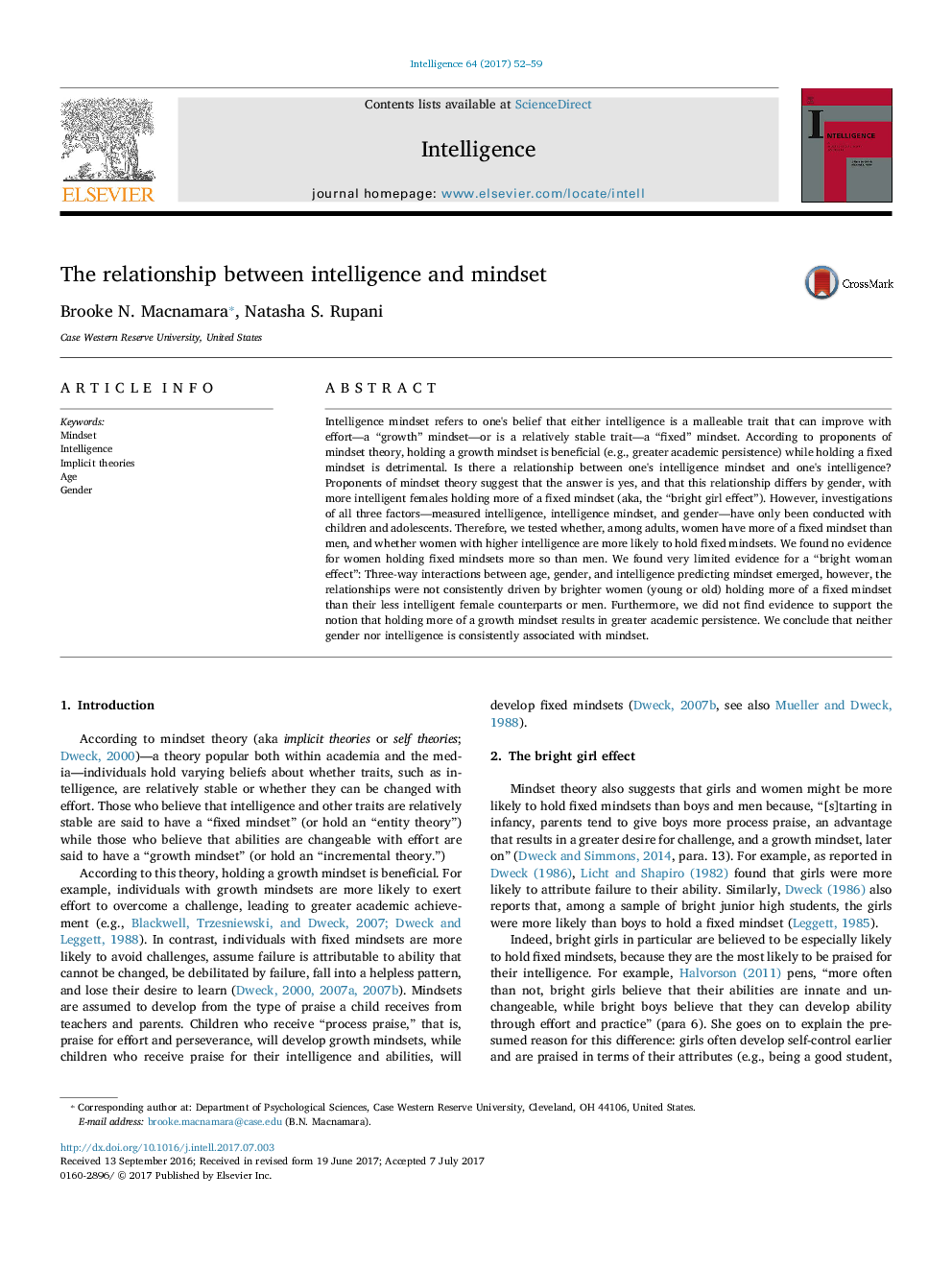ترجمه فارسی عنوان مقاله
ارتباط بین هوش و ذهنیت
عنوان انگلیسی
The relationship between intelligence and mindset
| کد مقاله | سال انتشار | تعداد صفحات مقاله انگلیسی |
|---|---|---|
| 156107 | 2017 | 8 صفحه PDF |
منبع

Publisher : Elsevier - Science Direct (الزویر - ساینس دایرکت)
Journal : Intelligence, Volume 64, September 2017, Pages 52-59
ترجمه کلمات کلیدی
ذهنیت هوش تئوری های نامتعارف، سن، جنسیت،
کلمات کلیدی انگلیسی
Mindset; Intelligence; Implicit theories; Age; Gender;

